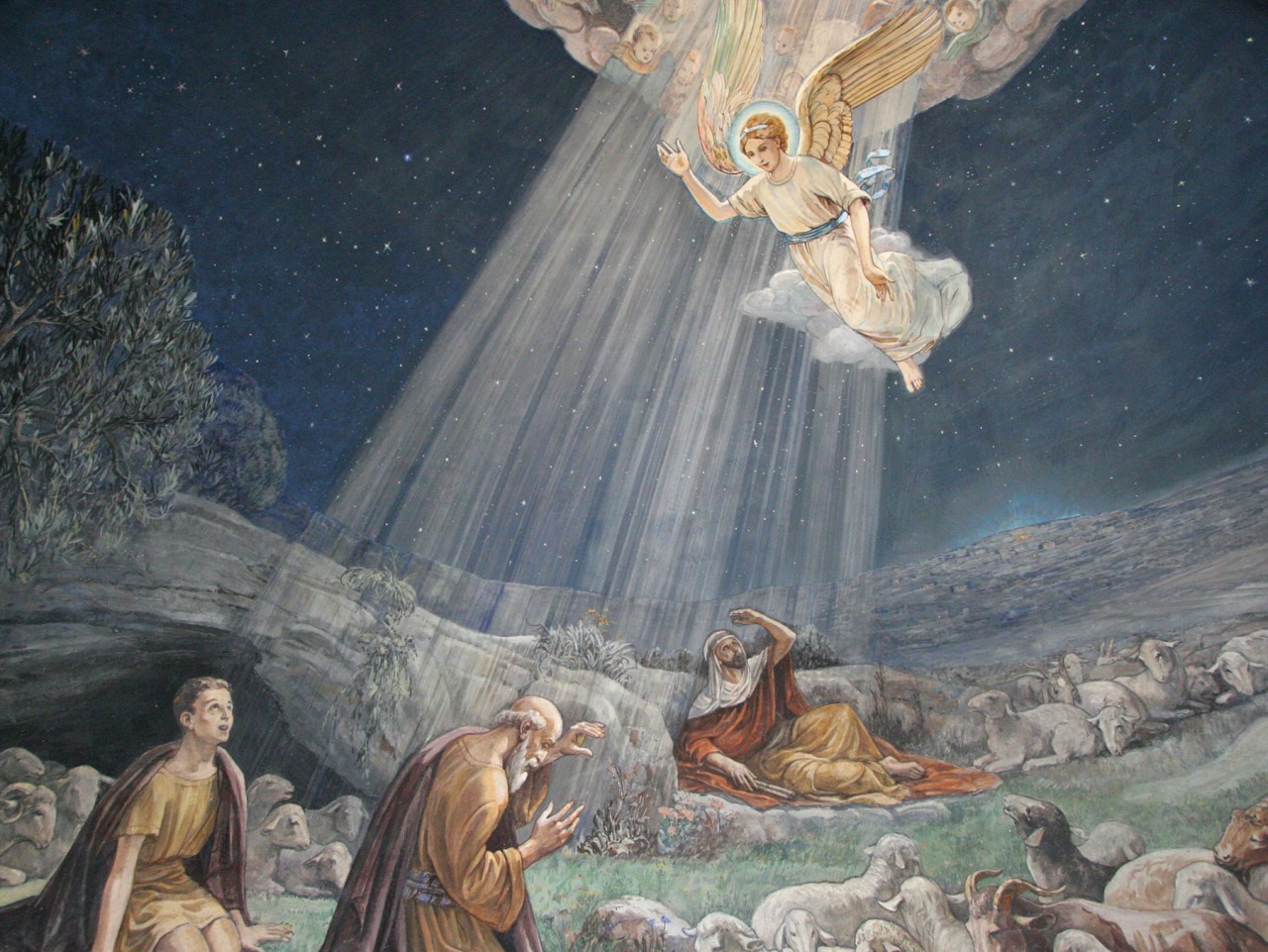“Fear not, for behold, I bring you good news of great joy that will be for all the people. For unto you is born this day in the city of David a Savior, who is Christ the Lord.”
With these words, the angels made the announcement of the birth of the Christ child. The words are so familiar to us that we often read and repeat them with a casualness that erodes the remarkable truth they embody.
For 400 years the people of God had not heard from God. No prophet had spoken, and no angel had interrupted the silence. The people lived under the tyrannical Roman hand. Good news was scarce, and life had become a constant battle to deal with the occupying Romans.
Into the silence of 400 years breaks an angelic choir that filled the hillside full of sheep and broke into the sleeping shepherd’s space. The announcement was a word of glad tidings, good news—Gospel news. God was not just sending a word of prophecy. No, as the writer of Hebrews puts it, after speaking in various and sundry ways in the past through the prophets, God now speaks through the gift of His Son.
This good news is a declaration of the long-awaited One. The Deliverer they had long waited for has arrived. He is the Christ, the Messiah. Even the most secular Jew knew the prophecies of a coming Messiah. The greater the oppression of the Romans, the greater the longing for God to deliver on His promise.
Now the angels announce the good news that the Messiah has been born this very night in the town of Bethlehem, not in a palace warm, but in a manger reserved for the feed of cattle. How can this be good news? Surely, the angels have convoluted the message of God. The Messiah is the great deliver. Certainly, He deserves better.
But the key to the angelic message is found in the title “Savior.” The Jews were right to look for a deliverer. The angels were not speaking of a conquering king, but of a crucified Savior. He was not about defeating armies and gaining territory. No, this was the One who would deliver the people from something far worse than invading armies and the inevitable bondage that came with them. This Savior would save His people from the bondage of the soul—their sin. He would reconcile His people to their God. Freedom would come that would know no boundary or circumstance.
This same good news is not just for the Jews, but for all people. Jew or Gentile, slave or free, man or woman, red, yellow, black, or white, all could open their arms to the embrace of the Savior and find unspeakable joy when they receive forgiveness of sin.
This great announcement meant that mankind need not seek to find a solution to their sin problem, and man need not build towers to reach God. No, God has come down to man. All of our striving could not reconcile sinful man and Holy God. Only the Savior of Bethlehem’s manger could do that.
Good news? That is the understatement of the ages! It is magnificent, glorious, incredible news! This news is no less magnificent 2,000 years later when we hear it. Perhaps we will sing the beautiful Christmas carol with a deeper understanding and a greater joy than before. I pray the words will not fall glibly from your lips, but will lift from your soul.
Hark the Herald Angels sing, Glory to the newborn king.
Peace on earth and mercy mild, God and sinners reconciled.
Merry Christmas to all! The Lord has come!





